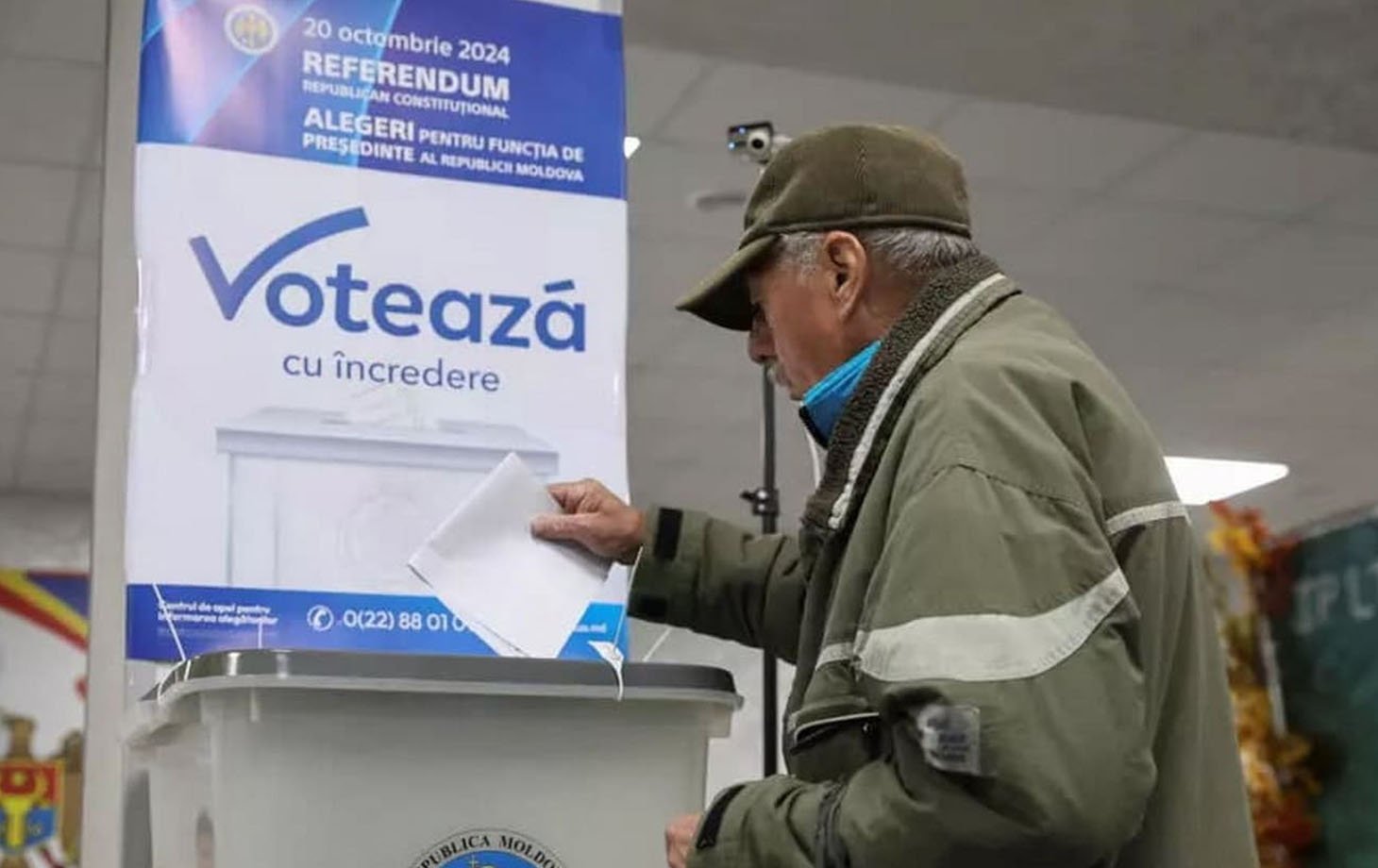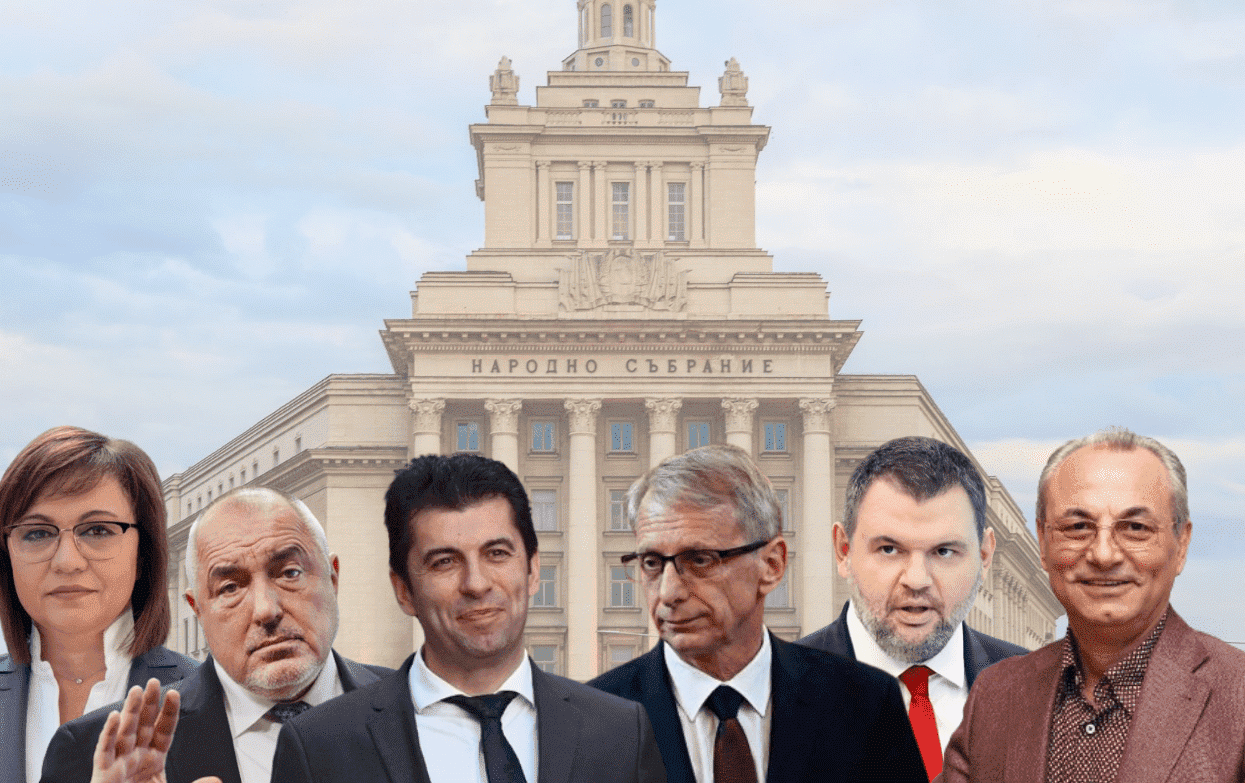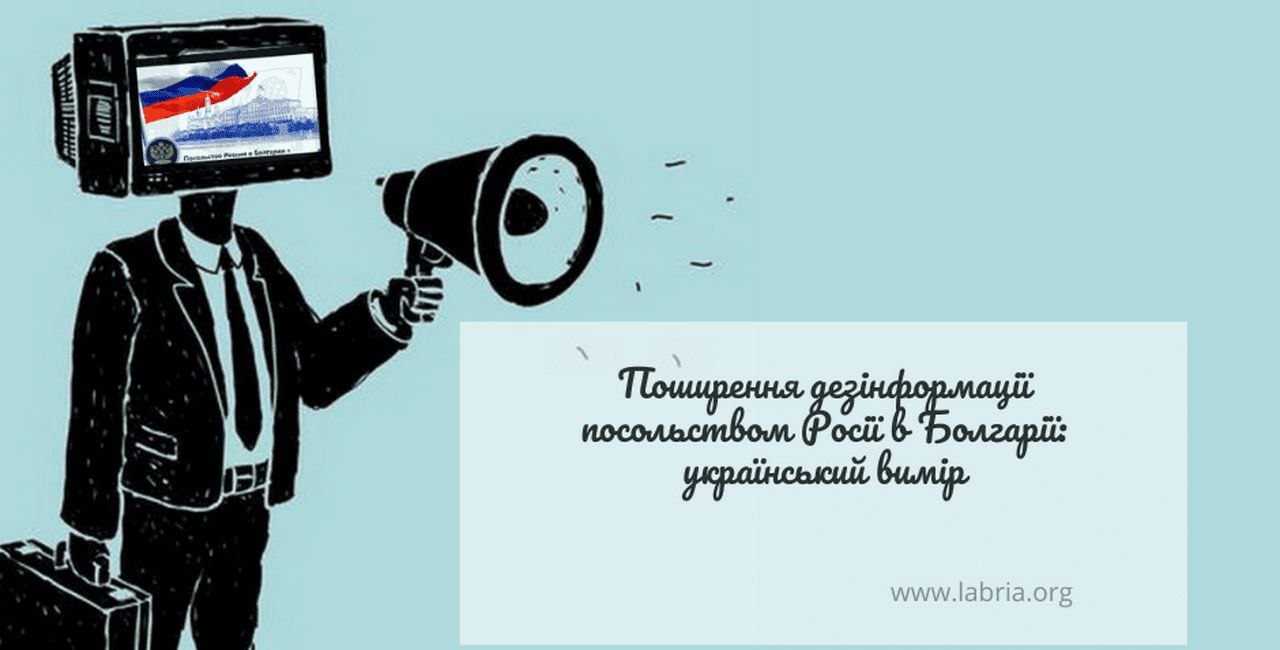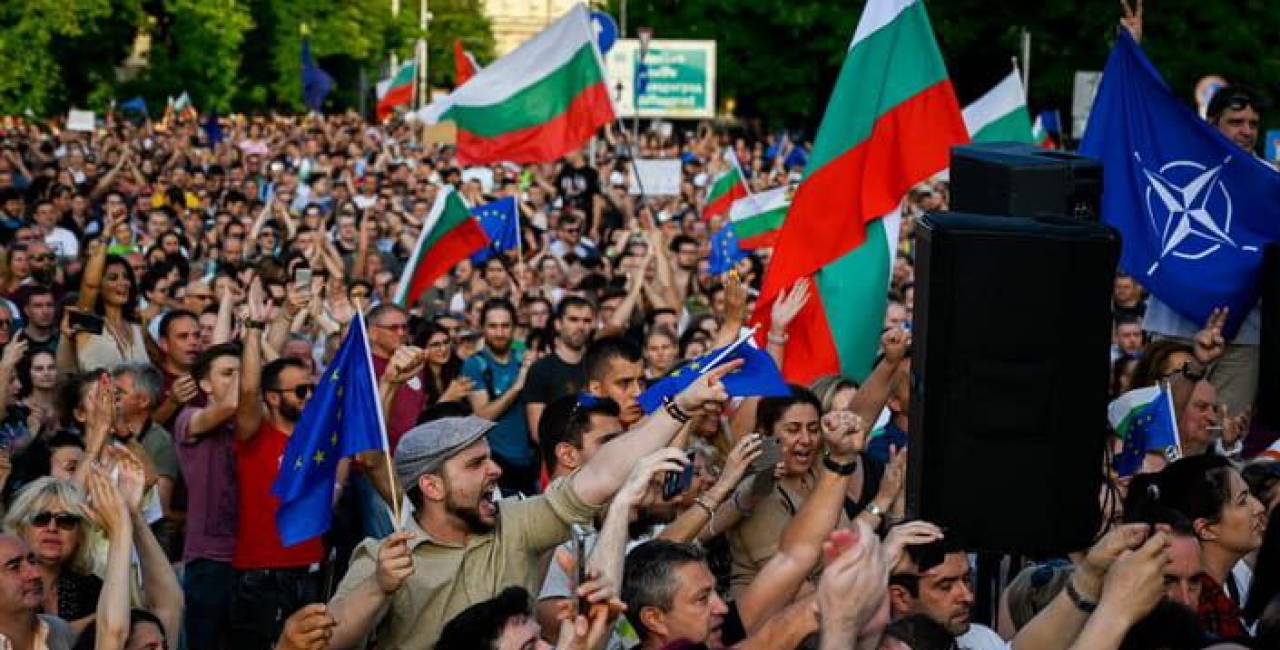
Moldova held presidential elections and a referendum on integration into the European Union. The incumbent President of Moldova, Maia Sandu, as expected, failed to win a majority in the first round and will face the Socialist candidate, the dismissed Prosecutor General, Oleksandr Stoyanoglou, in the second round. At the same time, the referendum results demonstrated, if not the head of the Moldovan law enforcement system and political class, the aggressive interference of the Russian elite in the internal affairs of the country.
The vote count is still ongoing, but initial conclusions can be drawn. The incumbent President of Moldova, Maia Sandu, was banking on a pro-European electorate and probably expected that the referendum would help her consolidate it around herself. However, some of the voters who voted for the EU did not support her. Previously, Maia Sandu is advancing to the second round with 42.09% of the vote. The PSRM candidate, Oleksandr Stoyanoglou, showed a fairly good result - 26.26% of the vote. The difference in votes is almost 250 thousand.
In Moldova, various options for such a combination were simulated. For example, the iData company, whose survey turned out to be the closest to the actual results, predicted that in the second round, in the case of a combination of Maia Sandu and Oleksandr Stoyanoglou, the results could be - 40.% versus 35.4%. At the same time, one should not forget about the high percentage of Eurosceptics who may still vote against Maia Sandu, as well as the capabilities of pro-Russian forces in Moldova, in particular the fugitive oligarch Ilan Shor, who, using the example of the referendum and the vote for the Bashkan of Gagauzia in 2023, demonstrated a fairly strong network of so-called "supporters". Therefore, the second round of the presidential election will be quite difficult for Maia Sandu and her team of political technologists.
More worrying are the results of the referendum on enshrining the inevitability of European integration in the Constitution of Moldova, in which almost one and a half million voters took part. The advantage of supporters of European integration over opponents is less than 10 thousand votes, and in percentage terms it is 50.21% against 49.79%. The lion's share of votes for EU integration were cast by residents of the capital and central regions of Moldova, as well as the diaspora in European and North American countries. At the same time, opponents of the EU concentrated in the north and south of the country.
Commenting on the voting results, President Maia Sandu emphasized that criminality and forces associated with the Russian elite were able to organize the number of "supporters" at the level of 300 thousand. Earlier, Moldovan law enforcement agencies published data on 130 thousand voters bribed by the entourage of Ilan Shor, who is in Moscow. It is quite likely that the indicated network worked in the referendum and in the event of the failure of the law enforcement system to prevent a similar scenario in the second round of the presidential elections and the parliamentary elections in 2025, the results for the pro-European forces of Moldova may be unexpected. It is worth recalling the elections of the Bashkan of Gagauzia in 2023, when the previously unknown candidate from the "Shor" party, Yevheniya Hutsul, won, despite the fact that representatives of other candidates and law enforcement agencies had data on massive vote-buying, but were unable to fully protect the democratic process from interference.
A preliminary analysis of the referendum vote in the regions of Moldova has demonstrated the changes that have occurred in recent years. It is important to emphasize that more than a third (37.4%) of the residents of the Transnistrian region of Moldova, which is not controlled by Chisinau, voted for European integration. At the same time, in the Gagauzia autonomy, where pro-Russian sentiments are quite strong and the influence of Ilan Shor's entourage has increased, only 5.16% voted for the EU. The Taraclia region of Moldova, where mainly representatives of Bulgarian nationality who have both Moldovan and Bulgarian citizenship live, also did not support European integration processes - 13.15% "for" and 86.85% "against". In the border regions with Romania, where pro-European sentiments were considered to be quite strong, there was also a slight advantage of opponents of EU integration.
The authorities in Chisinau will have to react quickly to the results and take into account the errors before the second round of voting, which will take place on November 3, 2024. Moreover, parliamentary elections will be held in 2025, in which the rematch of pro-Russian forces is likely to take place. In a parliamentary republic, where the key role is not played by the president, but by the parliament and the government, the loss of pro-European parties will have a significant impact on the foreign policy vector, even if the course for joining the EU is enshrined in the Constitution. Maia Sandu may find herself in a situation where she will not influence the country's domestic and foreign policy. It is enough to recall the former President of Moldova Nicolae Timofti and the situation after the election of Igor Dodon, when the country's parliament took away his right to appoint the head of the special service SIB.
Chairman of the Board of the NGO "Laboratory of Research and Information Analysis"
Ihor Karpechenko




